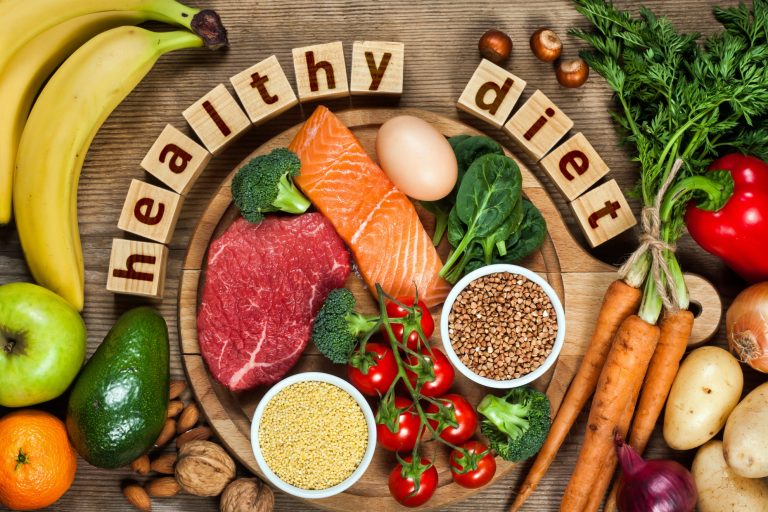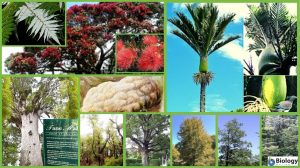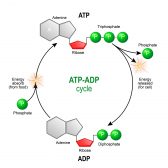A Balanced Diet – Minerals and Proteins

A balanced diet is essential to health
Table of Contents
Minerals
Various minerals in the Earth’s crust are required for a healthy balanced diet. These inorganic compounds have various roles or functions in the human body as well as in many other species (see a summary of essential minerals needed by plants). A summary of the main minerals involved in a balanced diet is outlined below:
- Iron – Iron is an essential constituent of hemoglobin. The hemoglobin is the molecule responsible for transporting oxygen in the bloodstream. It is also a part of cytochrome (an area important in cell respiration). Thus, it is an important mineral to have in our diet.
- Calcium – Calcium is required for strong bones and teeth. It is also essential in muscle contraction. Calcium can be found in various dairy products, such as cheese and milk.
- Sodium – Sodium is required by nerve cells. It is also used to produce hydrochloric acid that aids in food digestion.
- Iodine – Iodine is used to create thyroxine, a hormone that is partly responsible for controlling metabolic rate in the body.
Recommended reading: The Essential Elements from Science Learning Hub.
Proteins
As mentioned in the Cell Biology tutorial regarding the variety of proteins used in our body, it is essential that our diet contains proteins to achieve a healthy balanced diet. They are the building blocks of enzymes, hormones, and antibodies — all of which are essential in many biological processes.
Proteins consist of amino acids. Some of these amino acids are deemed essential as they cannot be synthesized from other materials and thus must be part of the diet.
Protein is abundant in dairy products, soybeans, meat, and cereal; which are all constituents of a healthy balanced diet.
You will also like...

Ecosystem Succession
If the balance of nature is left untouched, landscapes can change dramatically over time. A previous ecosystem is supers..

New Zealand’s Unique Flora
If New Zealand has lots of unique animals, it's also got a whole lot of unique plants. Find out more about some of them,..

Growth and Plant Hormones
Plants, like animals, produce hormones to regulate plant activities, including growth. They need these hormones to respo..

Water in Plants
The movement of molecules (specifically, water and solutes) is vital to the understanding of plant processes. This tuto..

ATP & ADP – Biological Energy
ATP is the energy source that is typically used by an organism in its daily activities. The name is based on its structu..

Photosynthesis – Photolysis and Carbon Fixation
Photosynthesis is the process that plants undertake to create organic materials from carbon dioxide and water, with the ..
